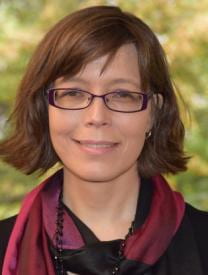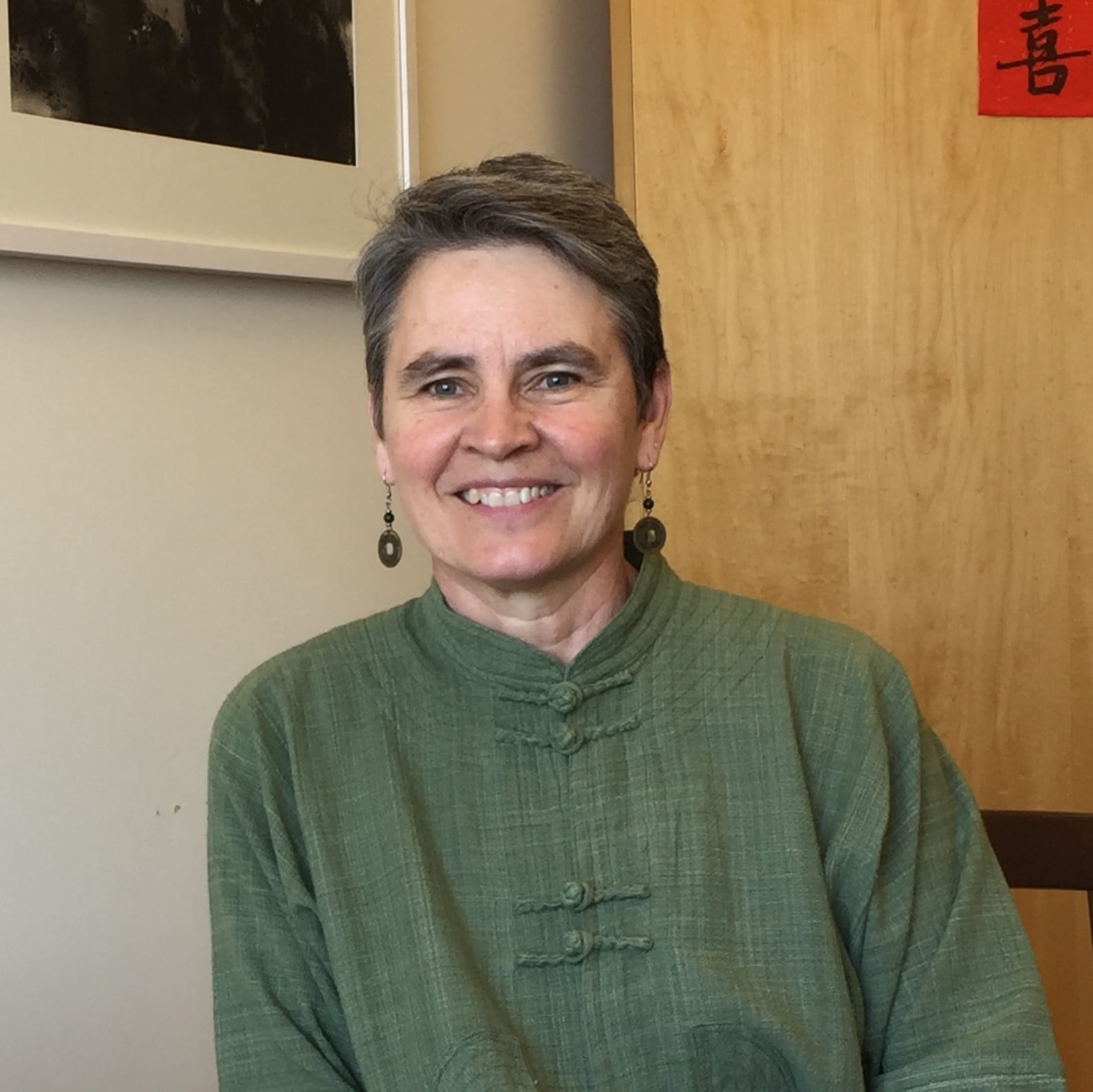
Robert Daly
Robert Daly directed the Kissinger Institute on China and the United States at the Woodrow Wilson International Center for Scholars from 2013 to 2025. Prior to that, he directed the University of Maryland China Initiative and served as American Director of the Hopkins – Nanjing Center for Chinese and American Studies. He began work in U.S.-China relations as a diplomat at the U.S. Embassy in Beijing in the late 80s. After leaving the Foreign Service, he taught Chinese at Cornell; worked on television and theater projects in China; and helped produce a Chinese-language version of Sesame Street. He is a director of the National Committee on U.S.-China Relations and the American Mandarin Society; a member of the Task Force on U.S. China Policy; and leads numerous international dialogues and research projects. His analysis is featured regularly on NPR, C-Span, CNN, BBC, ANA, and the Voice of America. He has interpreted for Chinese leaders, including Jiang Zemin, and U.S. leaders, including President Carter and Henry Kissinger.
Jacques deLisle
Jacques deLisle is the Stephen A. Cozen Professor of Law & Professor of Political Science at the University of Pennsylvania, where he also Directs the Center for the Study of Contemporary China. His research and teaching focus on contemporary Chinese law and politics, including: legal reform and its relationship to economic reform and political change in China, the international status of Taiwan and cross-Strait relations, China’s engagement with the international order, legal and political issues in Hong Kong under Chinese rule, and U.S.-China relations. He has served frequently as an expert witness on issues of P.R.C. law and government policies and is a consultant, lecturer and advisor to legal reform, development and education programs, primarily in China. He is also Director of the Asia Program at the Foreign Policy Research Institute.


M. Taylor Fravel
Emily Hannum
Emily Hannum is the Stanley I. Sheerr Term Professor in the Social Sciences and Professor of Sociology at the University of Pennsylvania, where she is also Associate Dean for Social Sciences. She is affiliated with the Population Studies Center, the Center for the Study of Contemporary China, the Graduate School of Education, and the Penn Development Research Initiative. Her research interests are poverty and child welfare, gender and ethnic stratification, and sociology of education. Current projects focus on childhood poverty in China, the implications of demographic decline for educational systems and educational inequality, and climate risk, pollution, and children’s welfare in China and in comparative perspective. She co-directs the Gansu Survey of Children and Families, a longitudinal study of childhood poverty and upward mobility in rural northwest China, and she is collaborating on a set of projects on climate, environment and childhood inequalities in China, India, and low- and middle-income countries. She is an investigator on a collaborative project that investigates effects of coeducational and non-coeducational schools on long-term life outcomes in Korea (PI: Hyunjoon Park). With Hyunjoon Park, she also organizes the Penn Education and Inequality Workshop, which supports the development of graduate student and faculty research related to education and social stratification at Penn.


Elizabeth Knup
Elizabeth Knup is a Senior Fellow at the Jackson School of Global Affairs at Yale University, where she teaches about the impact of contemporary Chinese governance systems both domestic and international. Prior to joining the Jackson School, she served as the Regional Director for China at the Ford Foundation from 2013-2023, overseeing Ford’s operations in China and its programmatic strategies focused on U.S.-China relations, the impact of China’s political and economic power in the world, and China’s domestic philanthropy. After serving 10 years at the National Committee on U.S.-China Relations, Elizabeth moved to China in 1998 to be the American Co-Director of the Hopkins-Nanjing Center for Chinese and American Studies. She later spent 11 years in the private sector as President of Pearson Education China, Chief Representative of the Pearson Group, and then Managing Director of Kamsky Associates. She is a member of the Board of Directors of both the National Committee on U.S.-China Relations and the American Mandarin Society, and serves also as a Senior Advisor to China Focus at The Carter Center.
Helena Kolenda
Until her retirement in January 2024, Helena Kolenda worked at the Henry Luce Foundation for 25 years, first as program officer (1998-2008) and then program director (2008-2023) of the Foundation’s Asia Program. Between 1981 and 1996, she spent a decade in China, working first as an English teacher with Volunteers in Asia and later as an attorney with the law firm of Paul, Weiss, Rifkind, Wharton & Garrison. She previously served as board chair of the Harvard-Yenching Institute, and now serves on the boards of the EEPS Foundation and the James P. Geiss & Margaret Y. Hsu Foundation, respectively, and is a member of the National Committee on U.S.-China Relations.


Arthur Kroeber
Arthur Kroeber is Founding Partner and Head of Research at Gavekal Research. Earlier, he co-founded the China-focused research service Dragonomics in Beijing in 2002 and was the editor of its flagship journal China Economic Quarterly through 2017. Since Dragonomics’ 2011 merger with Gavekal he has been head of research for the combined operation. Before founding Dragonomics, he spent 15 years as journalist specializing in Asian economic affairs, and reported from China, India, Pakistan and other Asian countries. Presently he also serves as an Adjunct Professor of Economics at the NYU Stern School of Business, a member of the Council on Foreign Relations and of the National Committee on US-China Relations, and a senior non-resident fellow of the Brookings-Tsinghua Center in Beijing. His book “China’s Economy: What Everyone Needs to Know” was published by Oxford University Press in 2016, with a second edition in 2020, and is widely used in university classrooms.
Kaiser Kuo
Kaiser Kuo is co-founder and host of the Sinica Podcast, a weekly discussion of current affairs in China that has run since 2010. Previously, he also was editor-at-large of The China Project. Until April 2016, he served as director of international communications for Baidu, China’s leading search engine. In 2016, he returned to the U.S. after a 20-year stint in Beijing, where his career encompassed music, journalism, and technology. He also spent a year in Beijing from 1988 to 1989, when he co-founded the Chinese heavy metal band Tang Dynasty as lead guitarist. In May 2016, he was honored by the Asia Society with a leadership award for “revolutionizing the way people live, consume, socially interact, and civically engage.”


Dave Rank
Dave Rank is Senior Fellow at Indiana University’s Hamilton Lugar School of Global and International Studies, non-resident Senior Fellow at the Center for American Progress, and head of the China practice at The Cohen Group, a global business strategy consultancy. He spent 27 years as a State Department Foreign Service Officer, including his final assignment as Deputy Chief of Mission and, following the 2016 election, Charge’ d’Affaires at the U.S. Embassy in Beijing. In addition to six Foreign Service assignments in greater China, Rank served in Washington and at the U.S. embassies in Kabul, Athens, and Port Louis (Mauritius). In 2015, he received the State Department’s Distinguished Honor Award for his role in the release of the only American service member held by the enemy in Afghanistan. He is also a recipient of the American Foreign Service Association’s Sinclaire Award.
Sophie Richardson
Sophie Richardson is Co-Executive Director of The Network of Chinese Human Rights Defenders (CHRD). Previously, she was a Visiting Scholar at the Center on Democracy, Development and the Rule of Law at Stanford University. She is a longtime activist and scholar of Chinese politics, human rights, and foreign policy. From 2006 to 2023, she served as the China Director at Human Rights Watch, where she oversaw the organization’s research and advocacy. She has published extensively on human rights and testified to the Canadian Parliament, European Parliament, and the United States Senate and House of Representatives. Dr. Richardson is the author of China, Cambodia, and the Five Principles of Peaceful Coexistence (Columbia, 2009), an in-depth examination of China’s foreign policy since 1954’s Geneva Conference. Her current research focuses on the global implications of democracies’ weak responses to increasingly repressive Chinese governments.


Jason Rodriguez
Jason Rodriguez currently serves as Minority Staff Director for the House Select Committee on U.S.-China Competition, in which capacity he oversees strategic policy development, manages committee operations, and coordinates policy initiatives addressing America’s most critical bilateral relationship. Previously, as Chief of Staff to the Deputy Secretary of Commerce, Rodriguez played a central role in implementing export controls policy during the Russia-Ukraine crisis, coordinated interagency meetings on U.S.-China competition, and led a departmental review of Commerce’s approach to China policy across sixteen bureaus. His deep Capitol Hill experience includes serving as Chief of Staff to multiple members of the House, including a member of the House Ways and Means Committee, where he managed complex legislative portfolios including trade policy issues. He holds degrees from Northeastern University and the London School of Economics.
Deborah Seligsohn
Deborah Seligsohn is an Assistant Professor in the Political Science Department at Villanova University. Her research focuses on Chinese governance of air pollution. The major focus has been on how corporate concentration (whether companies compete with one another) affects the Chinese government’s ability to regulate air pollution. She also researches other aspects of environmental governance in China, India, and US-China relations, including the role of transparency in autocratic governance and the impact of the China trade shock on US politics. Prior to embarking on an academic career, she had a career in policy, first with the US State Department and then with the World Resources Institute.


Mark Sidel
Mark Sidel is the Doyle-Bascom Professor of Law and Public Affairs at the University of Wisconsin-Madison. He has consulted and published widely on the nonprofit sector and philanthropy in China, India, Vietnam and elsewhere in Asia. He served on the Ford Foundation team that established the Foundation’s office in China, and as the Foundation’s first program officer for legal reform and nonprofit organizations based in Beijing in the late 1980s. Later he developed and managed Ford’s country programs in Vietnam, and then managed Ford’s regional program on philanthropy and the nonprofit sector in South Asia, based in New Delhi. He serves on the board of the Washington-based International Center for Not-for-Profit Law and a number of other groups.
Susan A. Thornton
Susan Thornton is a retired senior U.S. diplomat with almost three decades of experience with the U.S. State Department in Eurasia and East Asia. She is currently a Senior Fellow and Visiting Lecturer in Law at the Yale Law School Paul Tsai China Center. She is also the director of the Forum on Asia-Pacific Security at the National Committee on American Foreign Policy and a nonresident senior fellow at the Brookings Institution. Until July 2018, she was Acting Assistant Secretary for East Asian and Pacific Affairs at the Department of State and led East Asia policymaking amid crises with North Korea, escalating trade tensions with China, and a fast-changing international environment. In previous State Department roles, she worked on U.S. policy toward China, Korea and the former Soviet Union and served in leadership positions at U.S. embassies in Central Asia, Russia, the Caucasus and China.


Guobin Yang
Guobin Yang is the Grace Lee Boggs Professor of Communication and Sociology at the Annenberg School for Communication and Department of Sociology at the University of Pennsylvania, where he is also the Associate Dean for Graduate Studies at the Annenberg School for Communication, Director of the Center on Digital Culture and Society, and Deputy Director of the Center for the Study of Contemporary China. He studies social movements, digital culture, global communication, and contemporary China. He is the author of the award-winning The Power of the Internet in China: Citizen Activism Online (Columbia University Press, 2009) and The Red Guard Generation and Political Activism in China (Columbia University Press, 2016). His new book The Wuhan Lockdown has just been published by Columbia University Press.
